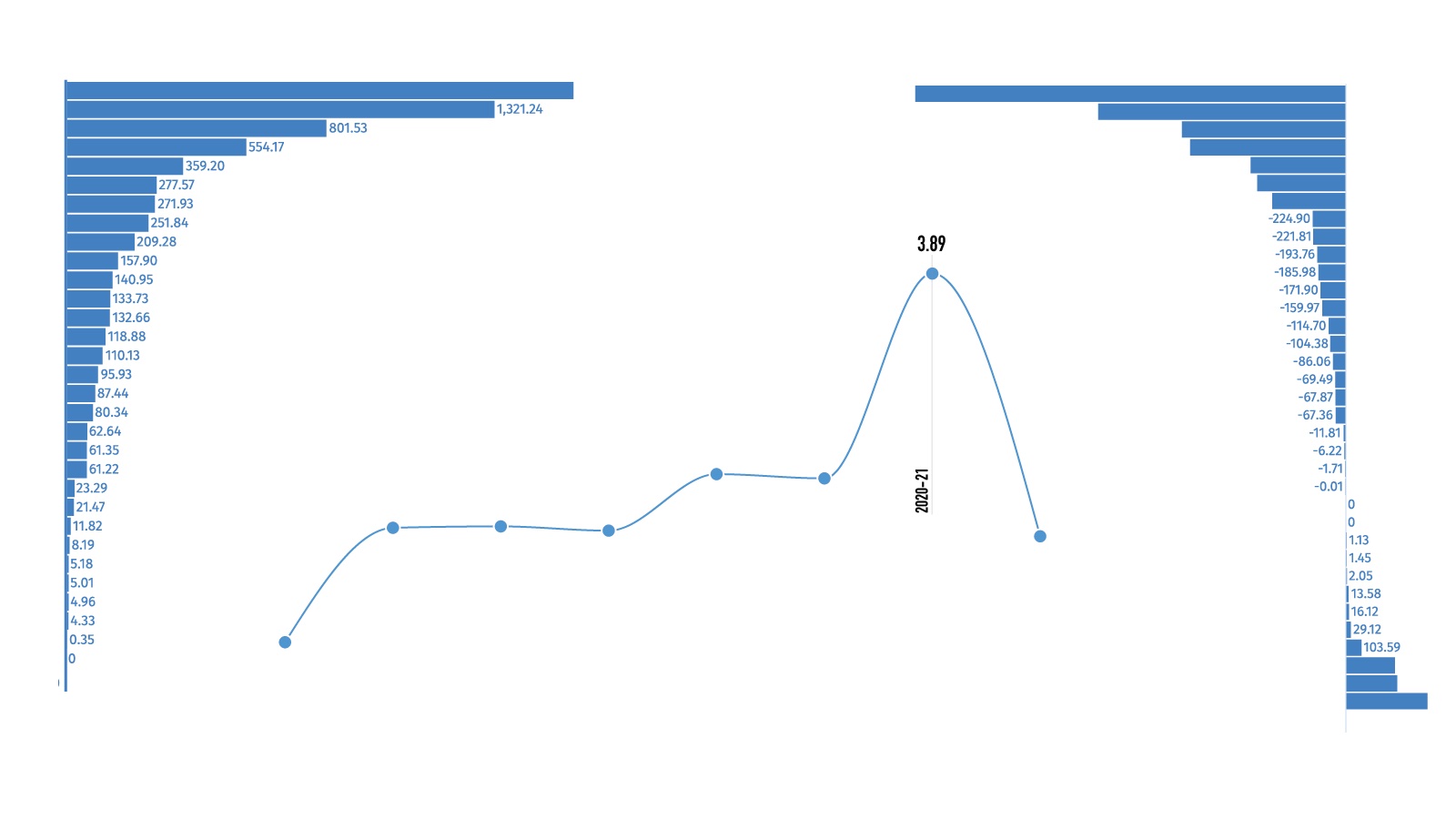Unpaid Wages Pile Up As MGNREGS Funds Fall Short
States are running out of money to pay wages to workers even as demand for the rural employment guarantee programme has risen because of the Covid-19 pandemic

Noida: India's flagship Mahatma Gandhi National Rural Employment Guarantee Scheme (MGNREGS) provided more days of work in 2020-21 than in any year since the programme began in 2008. But states are falling short of funds to pay workers.
In three charts, we take a quick look at the current status of the programme:
In 2020-21, the first year of the Covid-19 pandemic, when disease and related lockdowns decimated businesses and the economy, the programme provided 47% more person-days of work, as compared to 2019-20.
About 2.3 billion person-days of work were generated up to November 10, 2021, which is 86% of the employment provided by the scheme in the financial year 2019-20.
In the 2020-21 budget, the central government allocated Rs 61,500 crore for the programme, 13% less than the revised estimate for the previous year. This amount fell short; Finance Minister Nirmala Sitharaman announced additional funds of Rs 40,000 crore for the scheme in May 2020, which led to a record-breaking 3.89 billion days of employment generated under MGNREGS in 2020-21.
The government allocated no additional funds for the scheme after the second wave of Covid-19. The MGNREGS budget for 2021-22 is only 1.8% more than the spending in 2019-20. In real terms, the allocations are less than that for 2015-16, the research group People's Action for Employment Guarantee estimates.
As a result, 23 of the 36 states and Union territories show a negative net balance--which means that more money was spent than allocated. With funds falling short, workers get paid late and get work for fewer days, IndiaSpend had reported in August 2021.
In all, states have a negative balance of Rs 10,342 crore. Andhra Pradesh has the biggest negative balance, followed by West Bengal and Tamil Nadu. For MGNREGS, the Centre is responsible for 100% of the wages and 75% of the material cost, while states fund 25% of the material cost.
Across India, more than 7% of wage payments (Rs 2,850 crore) are pending approval from the Centre, for work done between April and September 2021. Workers have to be paid wages within 15 days of completing a job.
Half of all wage payments, the highest percentage, are pending in Andhra Pradesh, as are 37% in Uttarakhand and 33% in Arunachal Pradesh. West Bengal has the most wages pending approval, followed by Tamil Nadu and Andhra Pradesh.
If the workers are not paid their salaries within 15 days, the state governments have to pay them a delay compensation at the rate of 0.05% of the wage amount delayed for every day.
We welcome feedback. Please write to respond@indiaspend.org. We reserve the right to edit responses for language and grammar.


